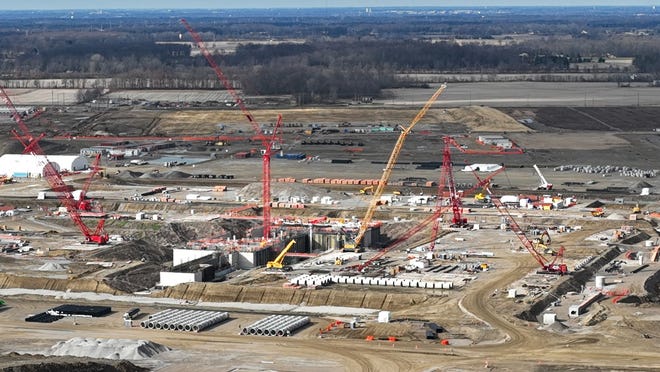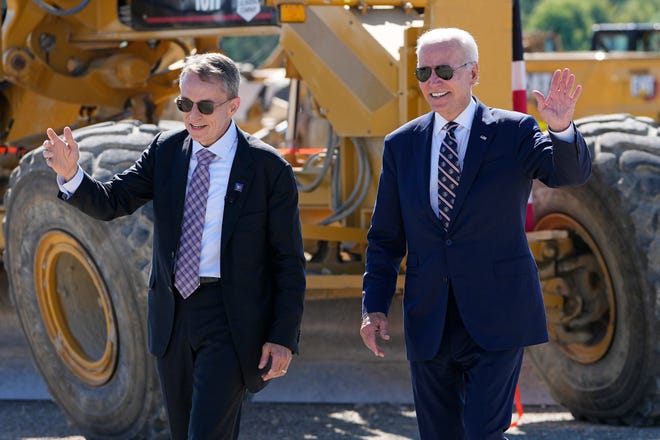Artificial intelligence boom to drive Intel’s Ohio business, CEO says

The way Pat Gelsinger see its, Intel’s $28 billion project in Licking County will one day produce the semiconductors that will be the driving force behind artificial intelligence.
“I want our Columbus site here, Ohio One, to be the AI systems fab for the nation, and I think this is going to be a huge driver of the demand and capacity that we have right here cause it’s going to need the most advanced chips in the world,” the Intel CEO said in Columbus this week.
Gelsinger and Intel announced its plan to build two factories, called fabs, in New Albany two years ago, employing 3,000 workers as part of a plan to bring back production of the critical, tiny devices that power everything from cars to military equipment to the U.S.
Gelsinger said the AI push is going to be as transformative to personal computers, cellphones and other devices as the introduction of the internet was 30 years ago.
“It will change everything,” he said, and it will need the most powerful chips being developed today to make it work.
“It’s going be a stunning period,” Gelsinger said. “I think we’re in a super cycle of technology innovation largely driven by AI and chips for the next 20 years.”
Gelsinger was in Columbus for the Ohio Business Roundtable CEO Summit. The Dispatch was prohibited from covering Gelsinger’s interview with Lt. Gov. Jon Husted but was provided with a video of the interview later.
Gelsinger told the audience of business leaders that Intel’s operations will be a big winner of the AI boom and the products that will be made in coming years.
“They are going to become AI-enhanced and drive a lot more demand for chips and silicon, just like we’re going to build at Ohio One,” he said.
While in Columbus, Gelsinger said he visited the construction site that has grown to now have about 1,700 construction workers. He said he expects that number to ramp up through the year and that the company needs more workers to keep the project on track.
Intel has said the factories may take up to five years to build from the time it breaks ground, meaning they may not be ready to start making semiconductors until 2027.
“This is a corn and soybean field that’s just emerging in what will be one of the largest semiconductor manufacturing sites in the world,” he said. “It’s marvelous to see new kind of growth in that field.’’

Intel will need construction workers for years to come, Gelsinger said, repeating previous comments that Intel intends to add more factories at the site in the future and that the site could ultimately become a $100 billion investment for the Silicon Valley company.
“I expect construction workers who come here to finish their career here,” he said. “When we finish the first two modules, hey, we want to start the third, then the fourth and then the fifth. We just want to continue to build out the location over time.”
The project in Licking County will be a magnet for other kinds of workers over time, including police officers and teachers.
“We feel we’re home in Ohio,” he said. “We feel like we have a value match. We feel that we share goals of what were trying to accomplish.”
mawilliams@dispatch.com
@BizMarkWilliams



